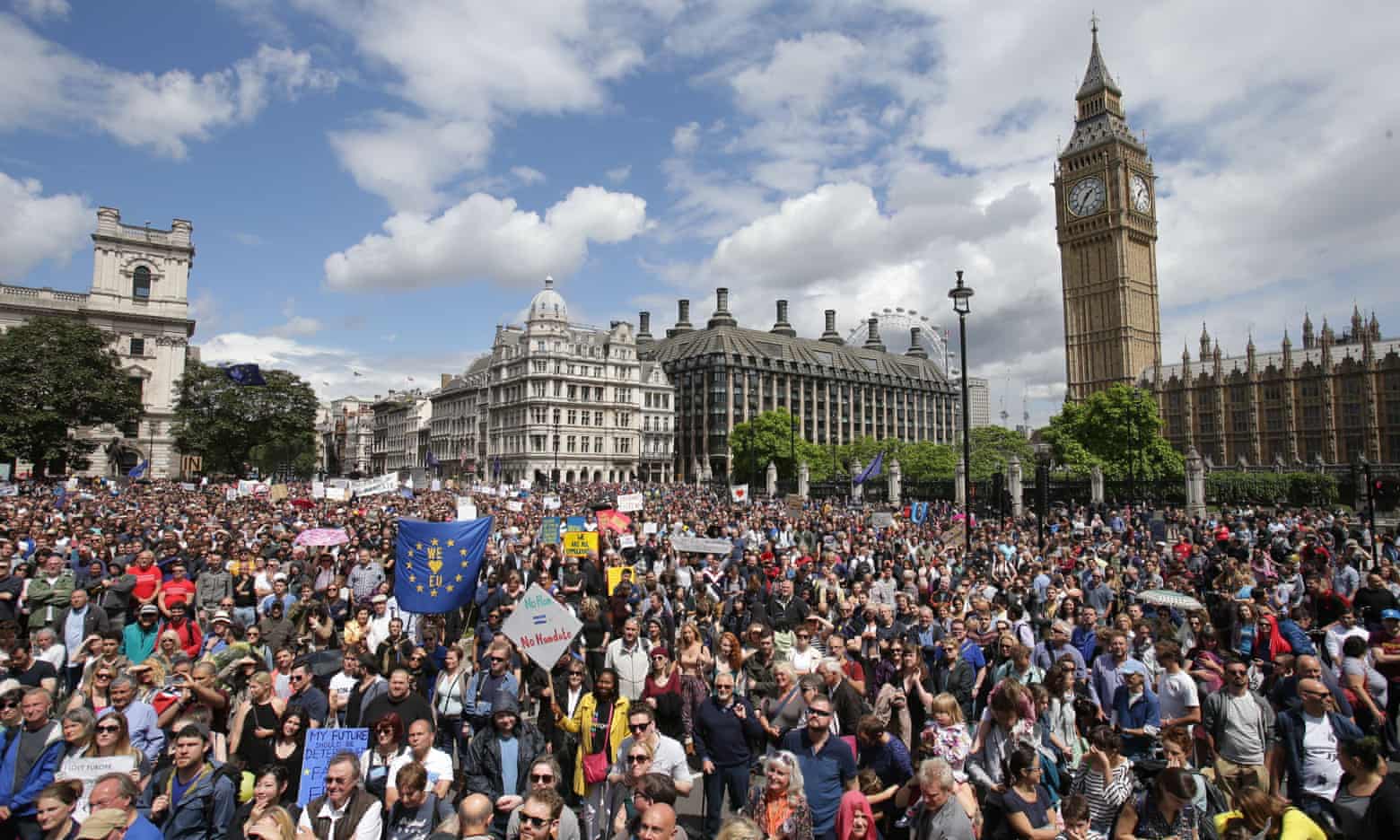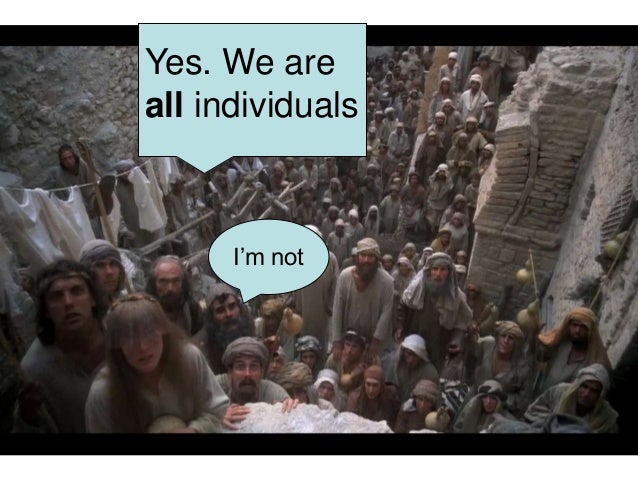Granted, it's an opinion, not a measurable fact. Point conceded. But, to those who think laws should be absolute, have you gone utterly barking batshit crazy ?
Now, normally I reserve the hyperbole-laden posts for sci-fi reviews, because most people are level-headed enough to understand that I don't actually think that Battlestar Galactic is going to usher in the next apocalypse or that I'd spit in the eye of anyone who enjoys Stargate Universe. Of course I don't, and I wouldn't. Under ordinary circumstances though, I generally try and make my philosophical commentaries fairly moderate, almost by definition.
These are not normal circumstances.
Let's see... not much sleep this week... worst political crisis in living memory... 22 hours of talks in 4 days that were mostly about topics I don't understand stuck in the same room without much ventilation... too much heat... yeah, moderation can go boil its frickin' head. Hence, I may say things which I do not really entirely agree with.
What is the purpose of the law ? To prevent crime by deterrent ? To punish for the sake of punishment ? To maintain order ? To enforce certain behaviours and discourage others ? To promote the values society aspires to ? To ensure justice ? Meh, who cares. It doesn't really matter, because it is self-evident that whatever the letter of the law, the spirit of the law is far more important. Interpreting the intent of the law is obviously not easy, but unless you think the law is some sort of monster that demands continual sacrifice, embracing the idea of absolute law is to embrace cruelty. And whatever the purpose of the law is, enforcing cruelty is not something I will ever, ever, ever support.
The original meme comes from a very good episode of Star Trek : The Next Generation that was executed in a really crappy way. In the episode in question, the Edo species have achieved an incredibly dull sort of utopia in which everyone is impossibly attractive and seems to spend most of their time having sex. It's an absurdly idyllic yet dull sort of existence, not dissimilar to the far more famous Eloi of H.G. Wells. Dullness aside, everyone appears to be at a Disney-esque level of happiness, only with more sex.
In the Edo system, ignorance of the law is no defence. Even more absurdly, even accidentally breaking the law (i.e. by tripping up and stepping on flowers) doesn't make any difference. Which means that any visitors would have to fully acquaint themselves with all of the Edo's laws to avoid running the risk of death. In the episode, neither side make much effort to understand the other's laws, otherwise the crew of the Enterprise would surely have given the "planet of the very stupid people" a hell of a wide berth. It's obvious to anyone with a lick of sense that stepping on flowers isn't as bad as killing babies, so why would you expect the same punishment for both ?
One of my all-time favourite memes explains things rather well :
True, in the middle it can be hard to distinguish one colour from another. But it is not at all hard to distinguish red from blue, there are some things for which it's just damn blindingly obvious to anyone half-sane that red is different to blue, that some things are better than other things.
But in case even the absurdity of the Edo's laws isn't obvious to you, we can go one better. One could imagine a law which said nothing except that anyone who disobeyed that law should be exterminated. Would that be just ? Of course it wouldn't. Laws are not automatically just. Therefore, enforcing the laws absolutely does not automatically ensure justice or fairness. I can't make it any more obvious than that. Laws should be absolutely fair, but since we can't always agree on what fairness is, if you think they should be absolute then you have declared yourself morally omniscient. And that's very, very silly.
"Alright", you might say, "I can accept that these really extreme hypothetical cases*, the absolute law doesn't work. But I never meant that everyone who disagreed with me should be shot on sight. In reality, we just set different punishments for different crimes and we enforce that regardless."
* You didn't read the link about the UKIP candidate, did you ? You should.
Good try, but.... come on. If someone steals a loaf of bread from a rich* baker because they're starving and would otherwise die, does it really, really seem like justice to you to then make them pay a fine ? Even if their situation was forced upon them through no fault of their own ? What if they used to work in that very bakery but a new owner fired them because they wouldn't remove their tattoos or simply had a personality conflict ? Fining them would only keep them in the situation which drove them to poverty in the first place and is manifestly stupid.
* To my lasting dismay, people seem to continuously ignore the fact that the suffering of the rich is almost always far, far less than those at the bottom.
Or consider something more serious. Suppose our miscreant was routinely pickpocketing not to survive but just because they enjoyed the extra cash, occasionally straying into physical assault and burglary. This, on the face of it, is not a nice person.... but, what if they only do that because it's the only life they've ever known, if they've been brought up assuming this is correct way to live ? If such a person realises the error of their ways and shows genuine repentance, should you really treat them in exactly the same way as someone who shows no remorse and insults their victims in court ?
These are all, essentially, trolley problems. Yes, there are a few extreme cases in the real world where things are cut and dried, but the vast majority are far too complex for the law to make provision for all of them - without becoming so convoluted that no-one would be capable of understanding it. Not to mention various unintended consequences of laws being used for purposes for which they were never originally intended. Laws sometimes endure for centuries, others are fleeting.
Again, making laws absolute in any way is only sensible if you're omniscient, which, I'm sorry to say, you're not. The only reasonable question becomes not whether laws should be absolute, because that's just stupid, but how rigorously they should be enforced and what powers judges should be given over sentencing. Of course we must also guard against capricious judges making unfair decisions that favour those with power (laws have to be more than guidelines), but that is no reason for the wanton cruelty that moral absolutism would impose. What the hell gives you the right to just ignore any extenuating circumstances ? Nothing, that's what.
Which brings us, inevitably, to Brexit. I've made my case that we should try in some way to avoid actually doing this very stupid thing despite the result of the referendum. To recap, the arguments for the latter are as follows :
- The referendum was not legally binding, only advisory - so trying to apply legal absolutism in this case makes no sense anyway.
- The result will have far-reaching ramifications for decades to come, and should not be decided by a small minority (mainly of older voters who won't have to live with the consequences as long as the rest of us).
- The Leave campaign was based on lies. OK, political campaigns are often based on lies, but rarely are they of this magnitude or exposed this brazenly.
- Voting for a course of action which will objectively lead to harm makes as much sense as running a poll to decide if owls exist.
- Accordingly, an as-yet undetermined number of voters appear to have changed their minds, as well they should when presented with new evidence - the result may no longer reflect the will of the people at all, and should we really let such a major decision fall to such transient whims ?
- There are precedents for a such a move so it is not inconsistent with the established democratic process, even leaving aside that Parliament has every democratic right to ignore it. Like it or not, we don't have a direct democracy.
So far, all this has been met with by those who disagree is a scream of, "WILL OF THE PEOPLE ! WELCOME TO DEMOCRACY ! YOU DON'T GET TO CHANGE THE RESULT JUST BECAUSE YOU DON'T LIKE IT !"
Firstly, when have you ever heard me previously saying, "I don't like this result, we should ignore it ?". Answer : you haven't, because I've never said that even when things happened that I didn't like. But there are some things which are for all intents and purposes objectively bad, and it's those I have a problem with. It has nothing whatsoever to do with what I like, we're not talking about The Force Awakens here. I'm not going to argue that aspect, just watch the goddamn news already.
And anyway, in our society we damn well do get provision to change results we don't like. We are free to protest for (almost) whatever course of action we want. You may not want a second referendum or a general election or for Parliament to ignore the result, but I do. I am free to campaign for these things just as you are free to campaign against me.
 |
| When did the right to protest become undemocratic, pray tell ? |
Thirdly, I know what a democracy is, thank you so very much, and I see absolutely no reason whatsoever why this non-binding vote has to be treated as an absurd absolute. "We must jump into the volcano, we voted for it !" No you bloody mustn't - or if you must, don't you dare drag me along with you. If you really believe that a group vote to jump into a volcano must be binding even though the rules said it wasn't binding, then you are an idiot and I despise you. Natural selection clearly has its work cut out for the foreseeable future.
The only counter argument to this has been that "you can't simplify democracy like that". Really ? Oh, I think you'll find that I can. Apart from the magnitude of it, what exactly is wrong with my analogy ? And why the hell can't I (supposedly) simplify democracy, but you're apparently allowed to reduce it to a batshit crazy absolute extreme in which any non-binding vote must be considered sacrosanct no matter the absurdity of the result ? Aaaaaarrrghhhh !
The ideal democracy is not one in which everyone gets to vote on every issue. It's one which everyone gets to vote on every issue and is also an informed expert about everything. Plato's Republic took that idea further, postulating that only the experts at ruling should be allowed to rule. All of these notions can't and don't exist in the real world. Representative democracy is a sort of hybrid. Most decisions (but not all) require a vote, which are almost always done by people we choose to vote for us. Those representatives aren't necessarily experts, but we would hope that since it's their job to understand what's being voted on, they are at least more expert than the majority for most of the time.
Occasionally though, we do make choices which are far closer to direct democracy. The problem is that most people are neither informed nor experts. They're not even responsible - they even vote on entirely different issues to the one put before them, sometimes out of protest, sometimes out of pig-headedness. No system, not even democracy, can function if enough people decide not to play by its rules.
What can be done about this ? Well, we can stop having referendums since people just don't know how to handle them. If we want them back, I suggest gradually trialling them on much more local levels for minor decisions first, so that people accept that what they decide has, well, you know, actual freakin' consequences before we let them play with the big decisions. Then, we've got to reform the education system and, equally importantly, the way the media are regulated. We could also think about requiring qualifications for ministerial positions and addressing the fundamental purpose of work, so that people actually have time to research issues properly. We will not get a perfect solution, but we might get one a damn sight better than the one we've got.
In the meantime, if you want to stop Brexit, keep exercising your democratic right to protest. Keep signing petitions. Keep writing letters to your local representatives telling them to use their democratic right to veto the non-binding referendum result. Stall for time to delay Article 50. Keep reminding people that there is nothing, nothing, nothing remotely undemocratic whatsoever about people changing their minds. Direct democracy got us into this mess, representative democracy may yet get us out of it.









No comments:
Post a Comment
Due to a small but consistent influx of spam, comments will now be checked before publishing. Only egregious spam/illegal/racist crap will be disapproved, everything else will be published.